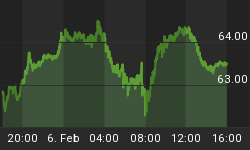Altruism is not the very first thing that comes to mind when the banking sector is considered, but a new generation of fintech companies is hoping to change that to some extent by tweaking offerings to be either “green” or socially equitable, such as offering avenues to credit for immigrants and harnessing an almost entirely untapped market.
The fintech industry is rapidly growing and the global industry is projected to reach a valuation of $310 billion in 2022 growing at 25% CAGR.
The number of fintech startups worldwide tripled in the last two years, rising from over 12,200 in 2019 to 26,000 in 2021, according to data by Boston Consulting Group (BCG). Last year, there were 10,605 financial technology startups in North America as the leading region, up from 5,800 in 2019.
But lately, there has been an explosion of fintech--both new and incumbent players--focusing on ESG, environmental, social and governance investing.
On a social level there are wide opportunities out there. And this year, a lineup of startups targeting under-served immigrants is raising an impressive amount of cash to that end.
Los Angeles-based startup Welcome Tech, which builds financial tools and services for immigrants in the U.S, has raised $35 million in a Series B funding round. The new funding takes the company's total capital raised to $70 million.
The funding round was co-led by TTV Capital, Owl Ventures and SoftBank with participation from Crosscut Ventures, and Mubadala Capital.
Since its founding a decade ago, the platform has attracted roughly 3 million users. The company targets Hispanic population, which represents the largest minority group in the U.S., with a population of 62.8 million.
According to the Federal Deposit Insurance Corporation (FDIC) survey from 2019, more than 12% of Hispanic households don’t have a bank account. Nearly half of Hispanics households in the U.S. are “fully unbanked,” meaning they cannot open an account
Company’s co-founder and CEO Amir Hemmat told dot.LA that Welcome Tech is building a better operating system for immigrants, and that won’t exclude eventual growth among other ethnic groups.
“The policymakers sit at the top of the white castle and, you know, they don’t actually impact the day-to-day practical needs [of immigrants],” said Hemmat.
To get a Green Dot Corp. banking account, customers open a bank account through Welcome Tech’s platform, without a social security number.
UK-based Pillar is another startup focusing on the unbanked immigrant population, recently raising nearly $17 million in pre-seed money from venture capital. Pillar expects to launch its open banking-led data and analytics engine in the third quarter of this year.
It’s a niche opportunity, to be sure. In the European Union, only some 5% of the population holds non-EU passports. However, around 18% of the employed population is foreign-born. So, it’s this 5% Pillar is hoping to tap into as a springboard into the wider 18%. That, as far as Pillar is concerned, is what makes this worth venture-capital backing, Sifted.eu reports.
And the United States has the largest immigrant population, making this market even more lucrative to harness. The U.S. is home to approximately 44 million immigrants, representing nearly 14% of the population.
















